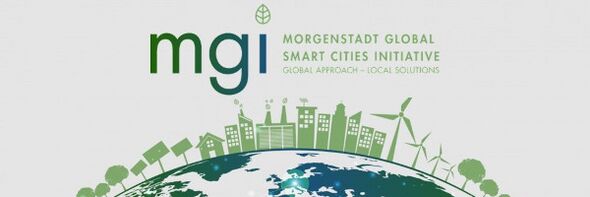Framework for Enhancing Disaster Mitigation and Regeneration of Community Capacity
| Framework for Enhancing Disaster Mitigation and Regeneration of Community Capacity | |
 Morgenstadt Framework | |
| Team Organizations | Green Urban Design |
| Point of Contact | Jiri Skopek |
| Participating Municipalities | Portland OR Coral Gables FL San Antonio TX |
| Sectors | Resilience |
| Initiative | |
| Status | Concept only Stage |
| Last Updated | January 31, 2026 |
Summary
Establishment of a framework that fosters collaborative efforts between diverse public, private, and academic partners to enhance disaster mitigation, community resilience and economic growth.
Problem Statement
The global community faces an urgent need for resilient urban development due to climate breakdown. Many communities lack the resources and structures to actively participate in decision-making tailored to their local needs. Whereas Disaster Mitigation and Community Regeneration demand a collective, multi-organizational effort to ensure economic, environmental, and community voices are well-represented, unfortunately, many communities lack the requisite resources and structures to actively participate in decision-making tailored to their local needs amidst changing circumstances.
Background
The proposed framework builds on several effective and symbiotic methodologies to deal with rapid change and climate resiliency, such as Regenerative Urbanism, The Natural Step,and The Morgenstadt Framework[1], supported by Digital Twins.
They all revolve around creating more sustainable and resilient futures and present a holistic approach to tackling the multifaceted challenges posed by climate change and urban growth. Objectives
- Community Engagement and Resilience: Engage communities in defining and implementing successful resilience responses, promoting showcase community models that can attract federal funding and inspire future projects.
- Data-driven decision-making: Develop Holistic Performance Indicators to facilitate transformative processes for dialogue and collaboration among stakeholders and utilize digital twin technology to aggregate and analyze data, enabling informed, evidence-based decision-making for disaster resilience and urban development.
- Holistic Perspective and Innovation: Embrace a holistic view of systems, emphasizing innovative solutions to address climate challenges and urban growth.
Strategy=
- Utilize a collaborative framework to establish “pain points”: with respect to resilience within a designated Community Disaster Resilience Zone: Facilitate collaborative dialogue within the community to ensure that all stakeholders are involved in the decision-making process.
- Develop Holistic Key Performance Indicators (H-KPIs): Working with the community, create a comprehensive set of H-KPIs that underpin adaptation and mitigation strategies, providing a roadmap for community success.
- Deploy Holistic Key Performance Indicators (H-KPIs): Employ digital twin technology to visualize vulnerabilities, H-KPIs, urban dynamics, aggregate data, and simulate scenarios, fostering data-driven decisions and stakeholder engagement.
- Implement and test in the community testbeds: Deploy the framework and H-KPIs in the designated Community Disaster Resilience Zone to assess their effectiveness and refine strategies accordingly.
- Promote the Showcase Communities: to become models of successful community-driven resilience projects, attract additional federal funding and inspire future initiatives.
How this might apply to the South Florida Climate Resilience Tech Hub
The South Florida Climate Resilience Tech Hub, led by the Miami Dade County Innovation and Economic Development Office, aims to advance its global leadership in Sustainable and Resilient Infrastructure (SRI) solutions for the global climate crisis.
The selection of Sustainable and Resilient Infrastructure (SRI) solutions would greatly benefit from a stakeholders’ consensus and support and community initiatives, and the adaptability of the community could be significantly enhanced by the implementation of the Disaster Mitigation and Regeneration Framework. The objective of the project is to facilitate community initiatives and improve resilience in those regions.
Expected Outcomes
- Comprehensive Understanding: The community and stakeholders will gain a comprehensive understanding of factors influencing resilience and sustainability through the use of H-KPIs.
- Informed Decision Making: Data-driven decision-making facilitated by digital twin technology will lead to more informed, effective strategies for disaster resilience and regeneration.
- Showcase Communities: Showcase communities will demonstrate successful, community-driven resilience projects, potentially attracting federal funding and serving as models for future initiatives.